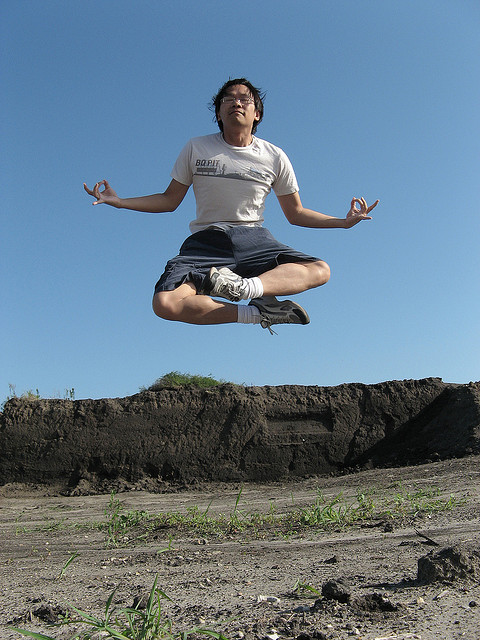This is really exciting news! Dr. Justin Feinstein and his team at the Laureate Institute for Brain Research (LIBR) have published their first peer-reviewed study on floating. Here’s a quick summary: Continue reading New research on floating
Tag Archives: physiological

Guest post: the small, unexpected benefits of floating
From time to time we like to turn over the microphone to other people. This guest post is from Float staffer Shayna C. – Sara
Now that I am a staff member at Float Boston, I’m fortunate to have the opportunity to float regularly (thanks, Sara and Colin!). Many of the immediate effects of frequent floatation are predictable enough: better sleep, fewer muscle aches, being physically unable to shut up about how great it is. Some of the other unforeseen results of regular visits to the tank took me by surprise. Perhaps you can relate? Continue reading Guest post: the small, unexpected benefits of floating
Athletic and artistic performance
 MMA fighter Pat Healy has called floating his “secret weapon“. “It’s hard to explain, but man, you really come out of there feeling relaxed. You can really focus your mind in there.”
MMA fighter Pat Healy has called floating his “secret weapon“. “It’s hard to explain, but man, you really come out of there feeling relaxed. You can really focus your mind in there.”
Former Texas air pistol champion Brooks Brinson believes flotation helps him compete. “It’s really a very mental game, the most mental in the Olympics.”
Hoop dancer Katelyn Selanders had burned out on her art. But then she started floating and found a new wellspring of passion. “I was fully reminded that this was why I had started hooping in the first place!”
We’ve already talked about the physiological benefits of flotation for injury recovery. But when it comes to athletes and performers, there is more to it than that. Flotation can induce a state of “relaxed alertness, concentration and reduced stress,” and sometimes that is just what the doctor ordered for bringing out your best.
In floating, the mind follows the body
One of our guest floaters, Joshua, came out of the tank with an interesting comment that he had found the sense of relaxation he obtained to be quite different than his experience of massage or yoga. We asked him what he meant, and he wrote us a great discussion. With his permission, we’re sharing it here:

Many people compare floating to the relaxation available from meditation or yoga. In quick simple terms, I found floating to be the exact opposite of these two techniques. In floating, the mind follows the body. In yoga and meditation, the body follows the mind.
I also experienced a marked difference in the type of “quiet mind” that the other two techniques produce. Having said that, once familiar with the experience of floating, even when going back to meditation it became easier to “get there” and easier to “stay there”.
Floating and injury recovery
In 1994 a young Australian cyclist named Brett Dennis rode off a cliff in the US Tour DuPont road race, falling 12 feet and smashing his femur through his hip socket. Doctors gave him little chance of walking properly again. Back home in Australia two weeks later, with a steel pin through his broken pelvis, Dennis was understandably depressed and near to giving up his sporting ambitions.
But at the Australian Institute of Sport, Dennis was put onto a program of intensive physiotherapy. He also spent an hour a day playing “mind games” — closing his eyes and visualising a blue light traveling from his chest to his hip joint, washing away damaged tissue and replacing it with new cells.